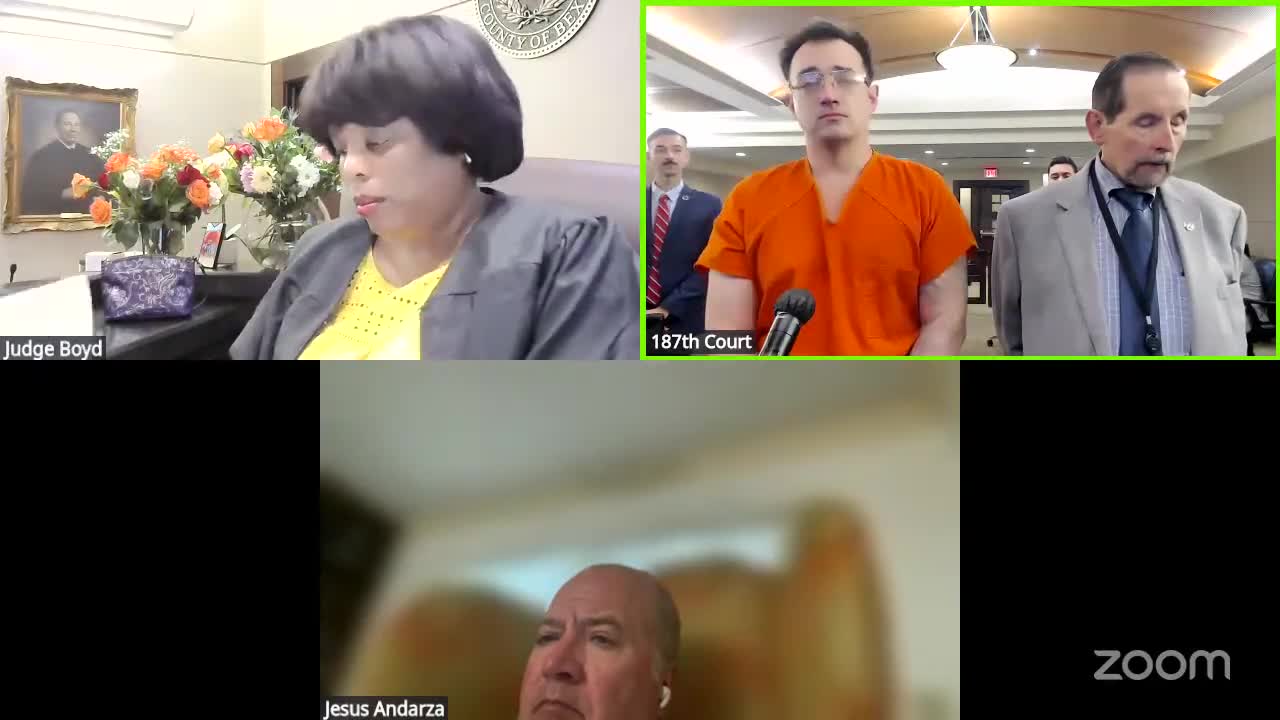Article not found
This article is no longer available. But don't worry—we've gathered other articles that discuss the same topic.
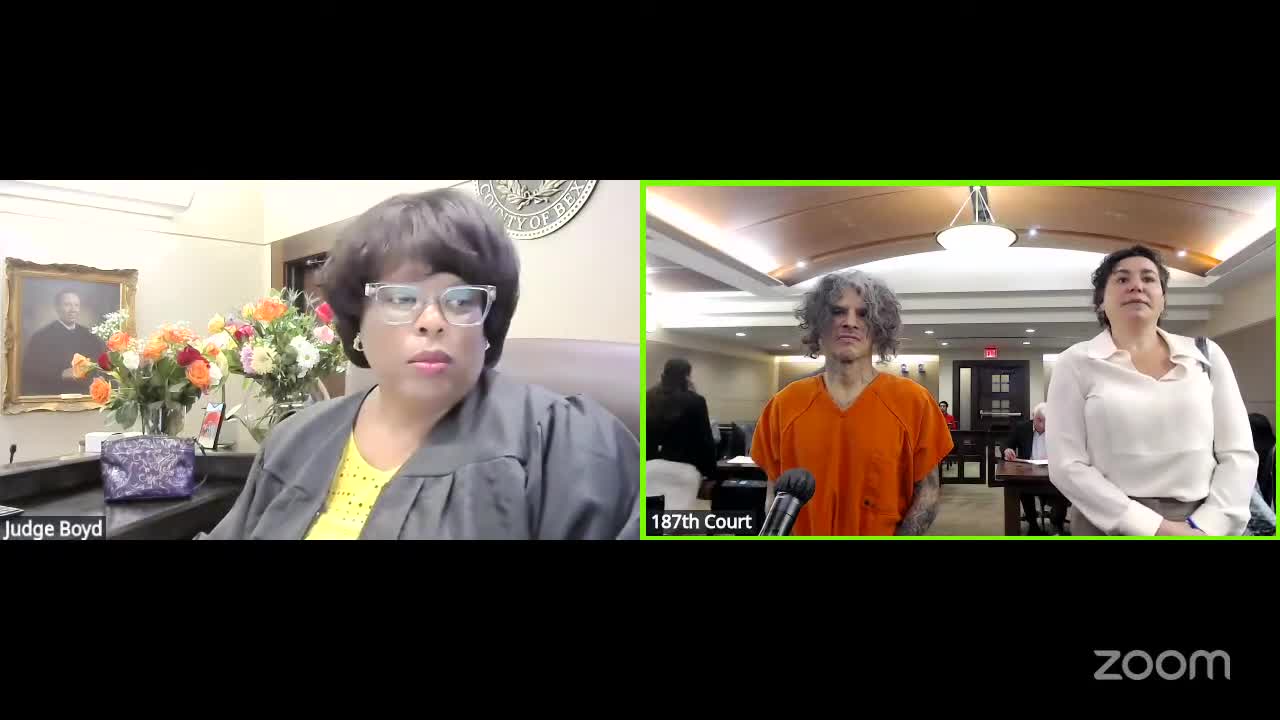
Judge Boyd orders 3-year prison term for Terrell Allen after probation violation; earlier mental-health staffing led to temporary release plan
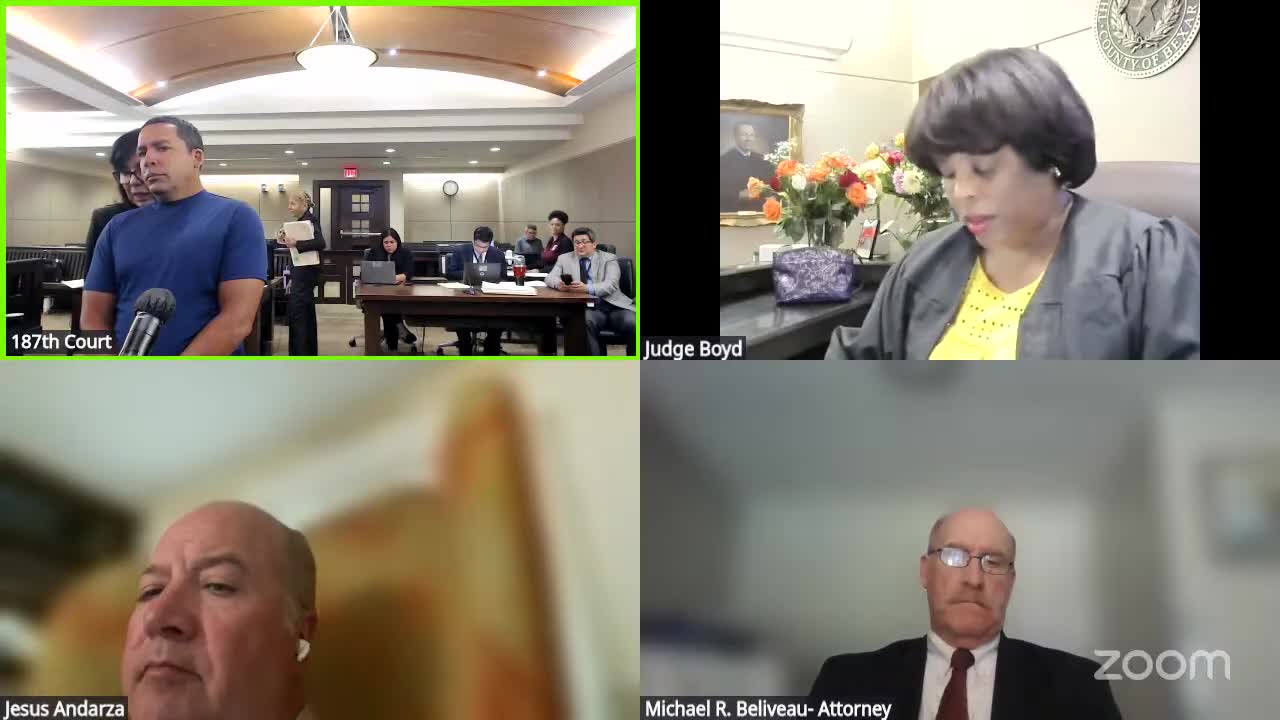
Court closes restitution issue in Miguel Perez Narano cases after no documentation provided
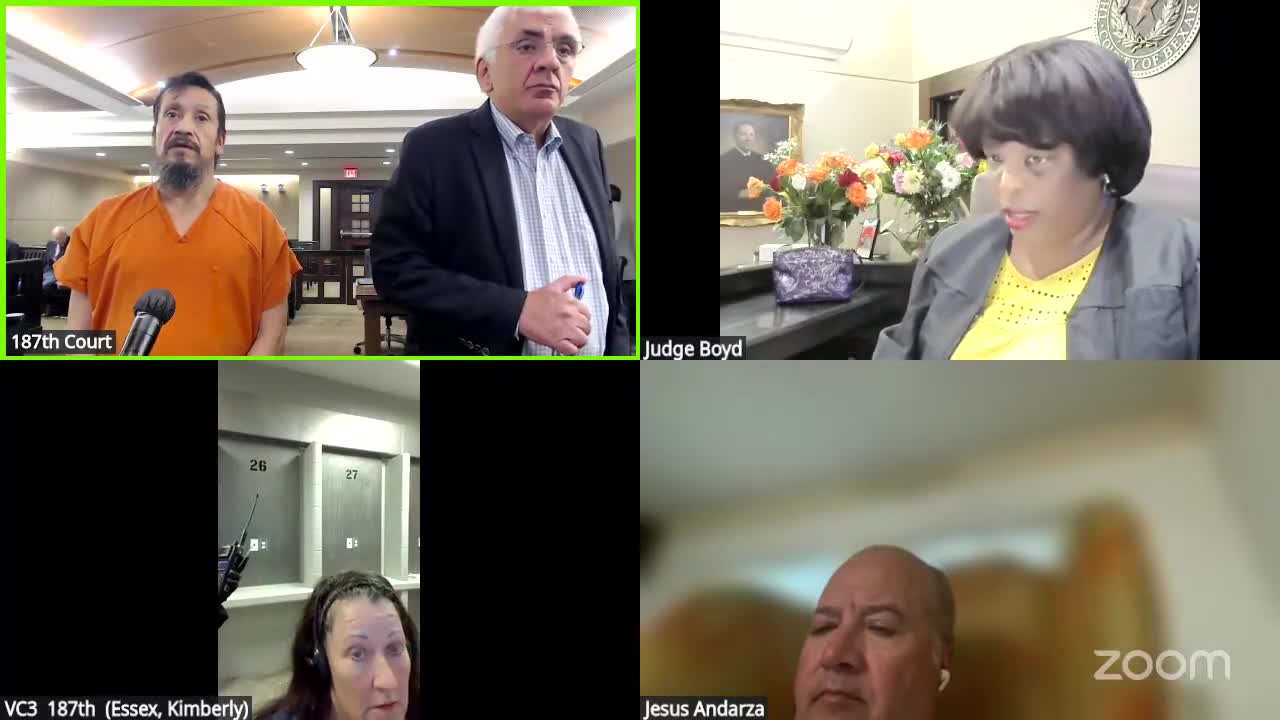
Kimberly Essex pleads no contest to exploitation of elderly; sentencing set for Sept. 29 with custody evaluations
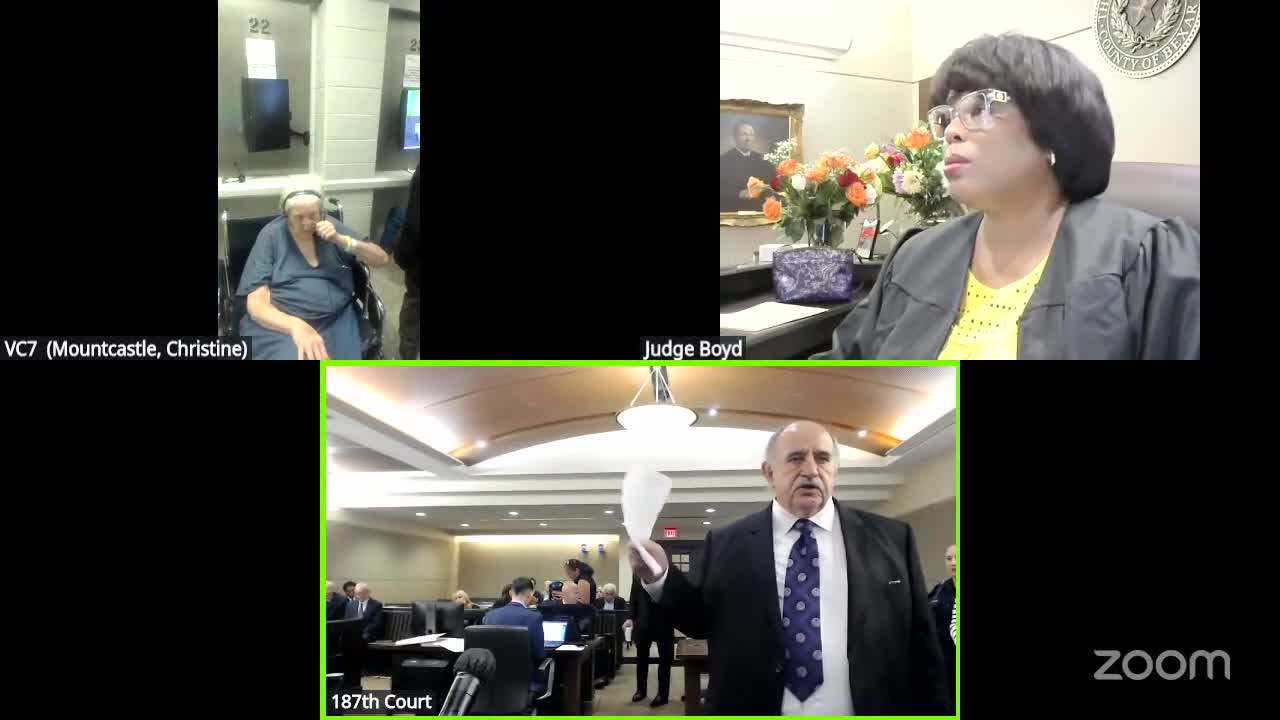
Judge Boyd sets $3,500 bond and GPS for Lacey Schrock; no‑contact order included
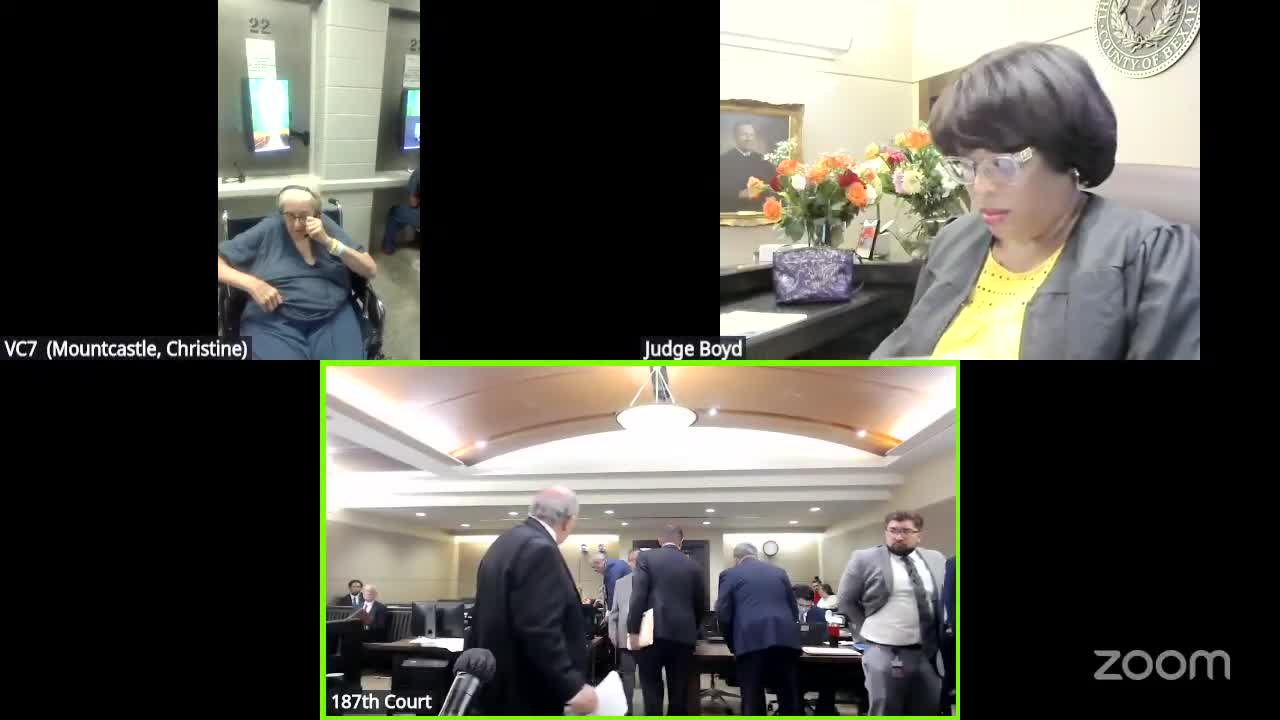
Man pleads in injury-to-child case; judge defers adjudication and places defendant on probation with conditions
